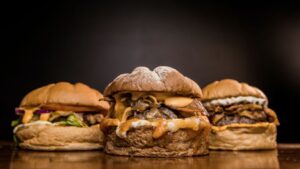Researchers at the University of Bristol shook things up with a study that goes against the popular belief that ultra processed foods (UPFs) are the most tantalizing. They gathered a bunch of folks and showed them pictures of various foods, from healthy avocados to indulgent ice-cream, to understand what really tickles our taste buds.
Putting Ultra-Processed Food to the Taste Test
Over 200 adults checked out images of 24 to 32 different foods. The goal? To see if how processed or calorie-packed a food is affects how much we crave it.

Surprising Findings
Contrary to what many thought, those highly processed munchies didn’t score higher on the “yum” scale compared to less processed or healthier options. It’s a bit mind-boggling that this hasn’t been directly tested before, said Prof Peter Rogers, the brains behind the study.
How They Did It
The gang of volunteers had the tough job of rating the foods based on how much they’d like to chow down on them and how appealing they seemed. They also had to gauge how sweet or salty these goodies appeared in their imagination.
What the Results Revealed
Guess what? Ultra-processed foods weren’t the winners in the popularity contest. What mattered more the intensity of taste, especially how sweet or salty something seemed. The study revealed that foods with a more intense taste tended to be more liked and desired.
What Really Matters
While processing didn’t turn out to be a reliable predictor of how much we’d love a food, the ratio of carbs to fat, the amount of fiber, and how intense the taste play a significant role. In fact, these factors accounted for over half of the differences in how much people liked the foods they were shown.
Why Do We Love What We Love?
According to Rogers, it seems like our preferences are wired to favor foods with equal amounts of carbs and fat, but less fiber. Why? Because these kinds of foods aren’t as filling per calorie. In simple terms, we seem to prioritize calories over feeling full.
Making Sure the Results Were Solid
To double-check their findings, the team ensured that things lined up. For example, they found a strong link between how sweet something seemed and its actual sugar content.
The Bigger Picture
With concerns rising about how much ultra-processed stuff we’re gobbling up, this study nudges us to rethink our assumptions. While some research links UPFs like sodas and ready meals to health problems like weight gain and heart issues, other studies suggest that not all ultra-processed foods are created equal. Stuff like bread and cereals might actually be good for us, according to some researchers.
In a Nutshell
This study’s a game-changer. It’s got us rethinking the allure of ultra-processed foods and highlighting that maybe it’s not about how much a food is processed but more about its taste intensity and the balance between carbs, fat, and fiber that really gets our taste buds excited.
